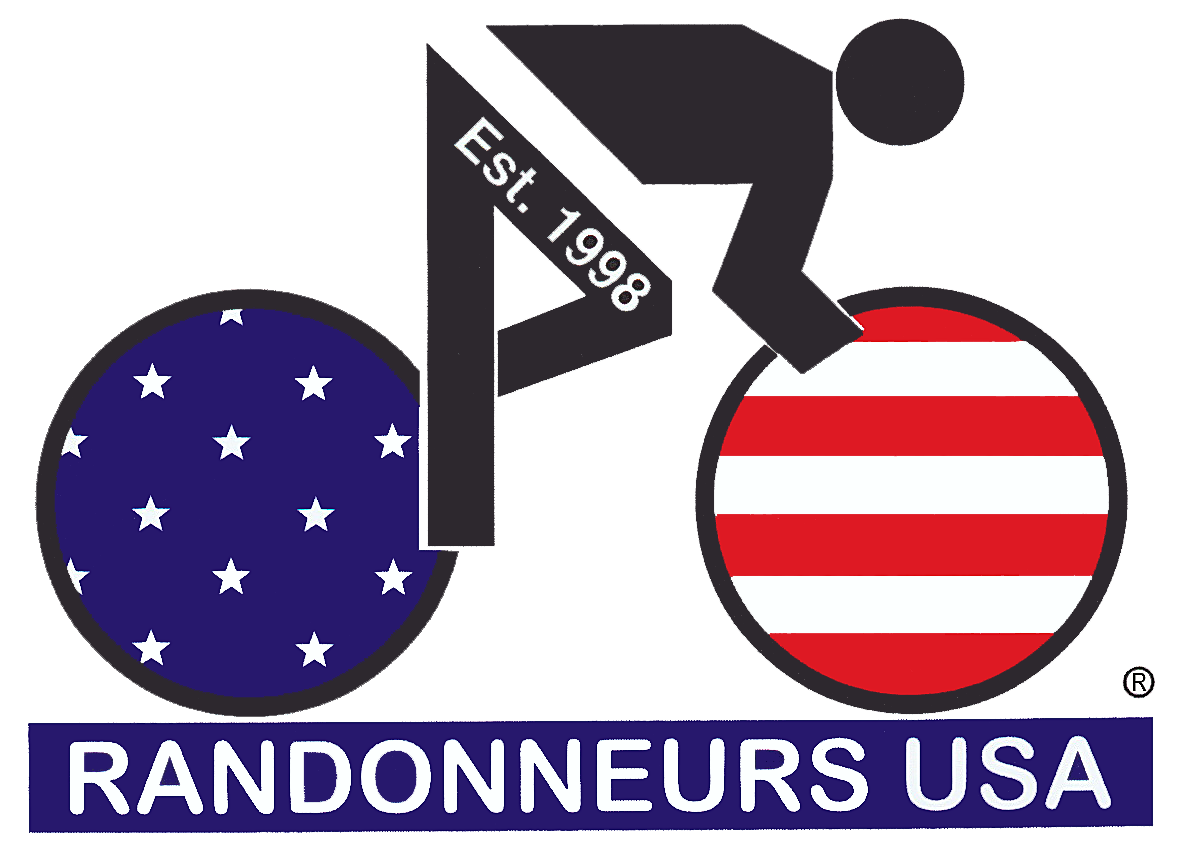By Bill Bryant
The day after PBP ended the quadrennial meeting of the Randonneurs Mondiaux was held in St. Quentin-en-Yvelines. About 65 randonneurs were present on Saturday, including delegates from most of the 33 member countries. (Since most of them had just completed PBP on Friday, their participation in an all-day meeting was testimony to their dedication to the sport; most other riders were still resting from the long ordeal.) US delegates this year included RUSA President Mark Thomas, Vice-President John Lee Ellis, Brevet Coordinator Lois Springsteen, and past-presidents Jennifer Wise and myself, Bill Bryant. Jennifer was RM president from 1996-1999, so her presence was invaluable. Also with us was Johnny Bertrand, a long-time RM participant and translator. (The RM meeting is held in both English and French; the translators get quite a workout since some of the discussions and debates can be lengthy and/or complex.) This year our good friend Avery Juhring did most of the translation duties. Avery was the ACP representative at RUSA's founding nearly ten years ago and he did much to help us get started back then. In any case, each country has one vote, no matter how many or how few delegates it sends.
Outgoing President Hans Dusink started with some opening remarks, including thanks on our behalf to the ACP for another successful Paris-Brest-Paris. He gave a report of the organization's activities during the past four years, and then some observations as he ended his term.
There were three items of new business for discussion on the agenda this year, and all were adopted by a wide margin in the subsequent voting:
• Australia made the proposal that other 1200k events be allowed in a PBP year. Heretofore, this was not allowed as the RM has always voted to award PBP a special protected status that encourages all randonneurs to congregate in Paris every four years. However, with the event now maxed out at five thousand participants (and the ACP not allowed to have more riders on the course by civic authorities) it was felt that the time had come to change this rule, if only to take some pressure off the French ride. For randonneurs not able, or not inclined to travel to France for PBP, now they can ride other 1200k events elsewhere in the same year. In particular, this would be a considerable benefit for those riders without the financial resources for foreign travel—and given the dollar's weakness against the euro, this new measure may affect Americans more than some might realize at first glance. It remains, of course, to see if clubs will organize new 1200k or longer events, but in lands outside Europe this will probably happen.
• The United States made the proposal that the timeframe for brevet workers' pre-rides be extended from the current eight days to 15 days before the event. The reasoning is that two weeks gives a little more leeway for event organizers than one week does, especially with longer events that last longer than a weekend, such as a 1000k or 1200k brevets. Hosting an event so soon after a lengthy pre-ride is quite taxing for volunteers and organizers alike, but a two-week window allows more mental and physical recovery. Or, in the case of shorter brevets, the current one-week time frame might force a pre-ride on a busy holiday weekend that does not have the safe traffic conditions a normal weekend might. And if something is discovered about the route during the pre-ride, that extra week allows some modification of route sheets, etc. (There was a side-motion by South Africa to allow "pre-rides" to be held after the actual brevet date, but this was voted down by a wide margin.)
• The United States also made a proposal that all 1200k (and longer) events be organized under the auspices of the national randonneuring league, not the Randonneurs Mondiaux. As is currently practiced, all brevets from 200k to 1000k are organized under the national league, but the longer ones are not. They are organized under the RM banner, but this then can cause some organizational glitches or variation from standard rules in each particular country. So, from now on 1200k organizers will deal directly with their national organization, just as they would for shorter events. RM will remain the overall controlling body, but the actual details of each ride will be determined by the national league.
Following the discussions, a surprise tribute was given to our own Johnny Bertrand by Jennifer Wise for his twenty years of service to the RM and the randonneuring community in general. "JVB" is a shy fellow and was squirming in his chair, but the high esteem in which he is held by so many randonneurs was amply shown by the loud applause given in his honor.
Then came the elections for the upcoming four-year terms. Vice-President Constant Devos of Belgium was elected as the new RM president, and Robert le Duc of the Netherlands as elected the new vice-president. Bob Lepertel was retained as treasurer.
Everyone then adjourned to a nearby restaurant for an enjoyable luncheon, courtesy of the RM. Here, with the serious business of the day done, old friendships were renewed and new ones made. There was a lot of lively conversation that lasted all afternoon, and the next RM meeting in 2011 seemed a long way off. Afterward, as we went back to our hotels, many of us wondered what randonneuring adventures, and new events, would take place during the next four years. But first, the more immediate concern for most of us was how would our bikes get disassembled for travel before our flights early the next morning!
